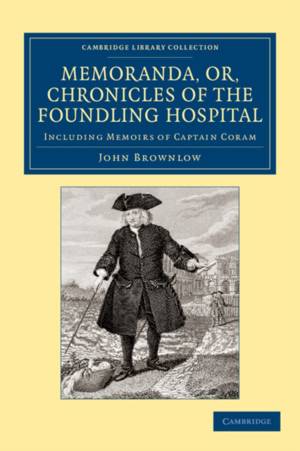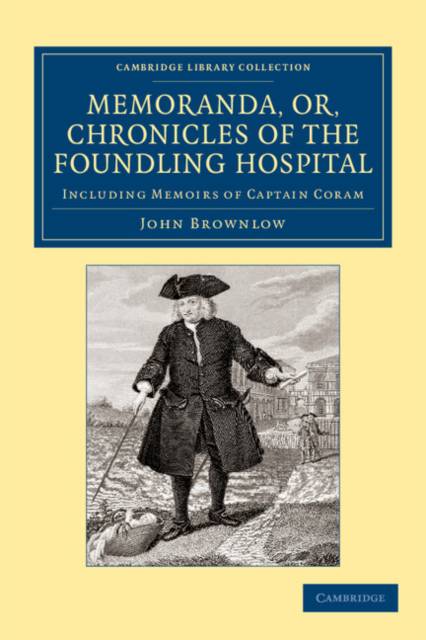
- Afhalen na 1 uur in een winkel met voorraad
- Gratis thuislevering in België vanaf € 30
- Ruim aanbod met 7 miljoen producten
- Afhalen na 1 uur in een winkel met voorraad
- Gratis thuislevering in België vanaf € 30
- Ruim aanbod met 7 miljoen producten
Zoeken
Memoranda, Or, Chronicles of the Foundling Hospital
Including Memoirs of Captain Coram, Etc. Etc.
John Brownlow
€ 64,45
+ 128 punten
Omschrijving
Captain Coram's Foundling Hospital was established in 1739 for 'the maintenance and education of exposed and deserted young children'. Hogarth was a governor of the hospital - he donated several pictures, including his portrait of Coram - as was Handel, whose famous performances of his oratorio Messiah were given there from 1750 to raise funds. John Brownlow (1800-73), himself a foundling, was secretary of the hospital from 1849 until his retirement. He introduced improvements to the children's education and was a staunch defender of the hospital, countering the criticism often levelled in the nineteenth century that taking in illegitimate children simply encouraged neglect. Brownlow's Memoranda, first published in 1847, presents a valuable account of the hospital, its early supporters, and Coram, as well as descriptions of the paintings (Kneller's portrait of Handel among them) which formed the first public art gallery in London. The book also includes contemporary engravings and facsimiles of many original documents.
Specificaties
Betrokkenen
- Auteur(s):
- Uitgeverij:
Inhoud
- Aantal bladzijden:
- 258
- Taal:
- Engels
- Reeks:
Eigenschappen
- Productcode (EAN):
- 9781108054836
- Verschijningsdatum:
- 18/04/2013
- Uitvoering:
- Paperback
- Formaat:
- Trade paperback (VS)
- Afmetingen:
- 152 mm x 229 mm
- Gewicht:
- 381 g

Alleen bij Standaard Boekhandel
+ 128 punten op je klantenkaart van Standaard Boekhandel
Beoordelingen
We publiceren alleen reviews die voldoen aan de voorwaarden voor reviews. Bekijk onze voorwaarden voor reviews.








